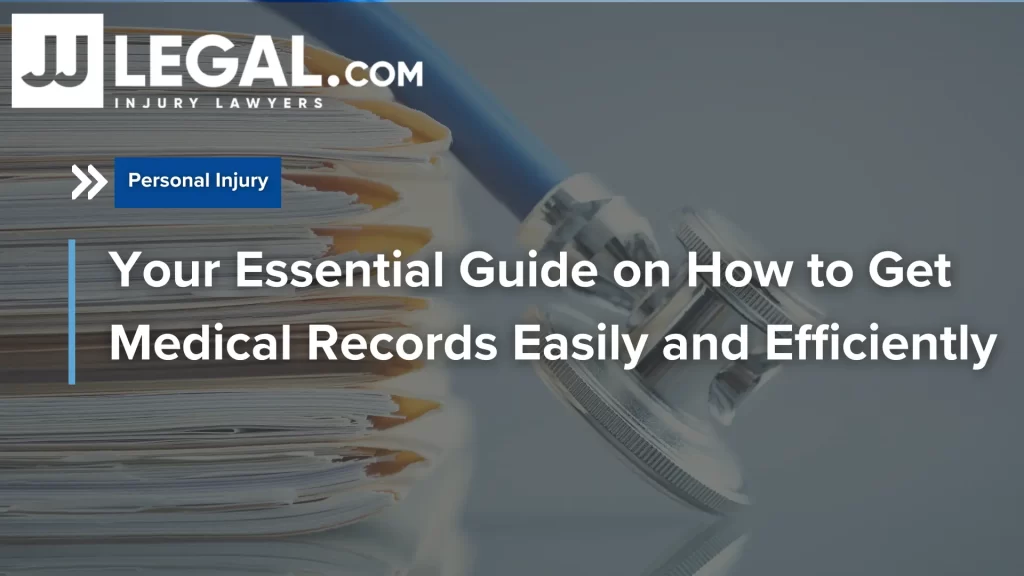
Obtaining your medical records need not be a challenge. Under HIPAA, you have the right to your health information. Learn about the variety of methods you can use, the potential costs, and your legal rights. With direct instructions and key insights, you’re empowered to seamlessly access your records.
Understanding the Importance of Medical Records
Medical records are not just paper or digital files, they narrate your health journey. These records, containing essential health information ranging from diagnoses to lab tests and procedures, play a pivotal role in your ongoing patient care. Apart from aiding healthcare management, medical records also serve as accurate sources for insurance claims and legal evidence.
The Health Insurance Portability and Accountability Act (HIPAA) entitles you to:
- Access and obtain copies for review and necessary care
- Medical records are typically required to be kept for seven years
- Even if a healthcare provider ceases to practice, provisions must be made for maintaining these records, ensuring your continued access.
Different Methods to Obtain Medical Records
Obtaining your medical records might seem like a daunting task, but it doesn’t have to be. You have several methods at your disposal. You can:
- Access your records online via patient portals
- Request them from the Health Information Management Department
- Contact your healthcare providers directly
Each of these methods have their own benefits, which we will explore in greater detail.
Requesting Medical Records Online
In today’s digital age, accessing your medical records can be as easy as logging into a patient portal provided by your healthcare provider. To use this service, you must first sign up for an account with the healthcare provider offering the service. Once registered, you can log in and view your health information, including summaries of recent doctor visits and medication lists.
Typically, these patient portals grant access to diverse health information such as:
- lab results
- medication lists
- allergies
- immunizations
- discharge summaries
This way, you can keep track of your health history and manage your health care needs more efficiently.
Contacting Health Information Management Departments
If online patient portals are not available, don’t worry. You can still access your medical records by requesting them from the Health Information Management (HIM) department of your hospital or healthcare facility. The HIM department is responsible for maintaining patient health information and ensuring its confidentiality. To obtain your records, you may need to fill out a health information form.
You can request to contact the HIM department directly via email or in person. It’s a straightforward approach that can make obtaining your records a breeze.
Communicating with Healthcare Providers
Another method to obtain is through direct communication with your health care providers, who are also considered as other healthcare providers. You can contact them via fax, email, or phone, ensuring compliance with HIPAA regulations and reasonable safeguards for privacy.
Bear in mind, if a doctor has ceased practice, you need to reach out to the provider who succeeded them. If you are a third party requesting medical records for a patient, you can do so by sending an authorization form and request via email or fax to the applicable hospital or medical group.
Legal Aspects of Requesting Medical Records
The law protects your right to access your medical records. HIPAA ensures that individuals have the right to:
- inspect or obtain copies of their protected health information (PHI) maintained in designated record sets
- access the information in your medical records
- request amendments when necessary
If you wish to send your PHI to a third party, a written and signed request identifying the recipient is required. Personal representatives with legal authorization to make healthcare decisions for an individual have the same rights to access PHI as the individual. Providers may deny access to medical records due to mental health concerns, ongoing litigation, or other lawful reasons, but they must clearly communicate these reasons to patients.
Costs and Timeframes Associated with Obtaining Medical Records

Even though accessing your medical records is a right, it may entail a cost. Fees for obtaining paper medical records typically range from $0.25 to $2 per page, depending on the state. For example, in Illinois, charges for paper medical records are set at $1.18 per page for the first 25 pages, $0.79 for pages 26 to 50, and $0.39 for each subsequent page. Microfilm records can be more expensive to copy, with costs in Illinois being $1.97 per page.
When it comes to electronic records, the cost cannot exceed 50% of the per page charge for paper copies and may include the cost of storage media such as CD-ROM or DVD. Additionally, healthcare facilities in Illinois may add a processing handling fee of $31.56, plus the actual costs of postage or shipping for delivering medical records. Therefore, it’s recommended to inquire about potential costs before requesting your health records.
As for timeframes, the standard processing time for requests is generally 5 to 10 days but legally should not exceed 90 days.
Requesting Medical Records for Special Circumstances
There may be special circumstances that necessitate the acquisition of medical records. These may include situations where the individual is a military veteran or when the person in question is deceased. In such cases, additional steps might be necessary when requesting, and one might need to request through a different process.
Military Medical Records
The process of obtaining medical records for military veterans may differ slightly. Veterans can request their health records from the U.S. Department of Veterans Affairs either directly or through online platforms. They can submit VA Form 10-5345a via mail or fax to their VA Facility’s Release of Information Office.
Before transitioning out, active service members intending to leave the military should request physical copies of their and their family’s health records. Service members can make requests for their military medical records in person at military hospitals or clinics or by utilizing Form SF 180, which should be mailed to the custodian listed on the form.
You can also access military medical records through the Department of Defense’s electronic patient portals, such as TRICARE Online or the Genesis portal, as long as these records do not contain classified information.
Deceased or Incapacitated Individuals
To access medical records for deceased or incapacitated individuals, you need specific documentation validating your authority or relationship to the patient. For instance, if you need to access the records of a deceased family member, you must have documentation of your relationship to the deceased to petition to become the executor of the patient’s estate.
This is a sensitive topic, and the rules are there to protect the privacy of the individual. It’s important to understand these rules and follow the correct procedures to ensure that the process is carried out appropriately and legally.
Correcting Errors in Medical Records
Medical records, which are often regulated by organizations like the American Medical Association, can contain errors. Upon discovering errors or omissions, it is vital to make corrections. After all, an accurate medical record is crucial for effective patient care. To correct identified errors, formally request changes or amendments to your health records at the concerned doctor’s office or hospital.
After making amendments, it’s essential for you to vigilantly ensure that the corrected information is consistently updated across all your medical records to prevent future issues. If a healthcare provider does not correct the disputed information, you have the right to submit a statement of disagreement to the provider.
Handling Denied Requests and Disputes
In some cases, even with adherence to the proper protocols, your request for medical records might get denied. In such cases, it’s important to ensure that:
- Your request was properly reviewed
- Correct authorizations were included
- All established protocols, such as proper letter-writing, signatures, and necessary payments, have been followed.
If you are still not received after these steps, consider taking the following actions:
- File a complaint with the OCR or the state’s Department of Health, making sure it’s within the 180-day time limit from the denial.
- Be aware that healthcare providers who unlawfully deny access to records can face significant fines.
- Remember that the law prohibits retaliation by the covered entity once a complaint is filed.
Contact a Chicago Personal Injury Attorney
Accessing your medical records might seem like a complex process, but with the right knowledge and understanding, it doesn’t have to be. From understanding the importance of medical records to knowing how to request them, the legal aspects involved, the costs and timeframes associated with obtaining them, and how to handle special circumstances and disputes – we’ve covered it all.
At JJ Legal, our Chicago personal injury attorneys are available to offer the compensation you deserve. Our team can equip you with the knowledge needed to navigate the intricate process of a personal injury case.
Whether you’re using a patient portal, contacting the Health Information Management department, or communicating directly with your healthcare providers, getting a hold of your medical records is within your reach. Learn more about how we can help by contacting us online or calling us at 312-200-2000 for a free case review.
Related Posts:
- Tips To Maximize Your Insurance Claim
- The Process of Negotiating a Settlement in an Injury Claim
- Loss of Earning Capacity Compensation After An Accident
Frequently Asked Questions
Can I access my medical records for free?
You have the right to access your medical records, but obtaining them may incur costs that vary by state and delivery method. Some healthcare providers may offer free access to an online patient portal.
How can I correct an error in my medical records?
To correct an error, you can request changes or amendments directly from the doctor’s office or hospital. It’s important to address any inaccuracies promptly for accurate healthcare records.
Can I request the medical records of a deceased family member?
Yes, you can request the medical records of a deceased family member by providing documentation of your relationship to the deceased, which is necessary to become the executor of the patient’s estate.
Can my request for medical records be denied?
Yes, your request for medical records can be denied for reasons such as mental health concerns, ongoing litigation, or other lawful reasons. If denied, you can file a complaint with the OCR or your state’s Department of Health.
How can military veterans access their medical records?
To access their medical records, military veterans can request their health records from the U.S. Department of Veterans Affairs directly or through online platforms using VA Form 10-5345a, submitted via mail or fax to their VA Facility’s Release of Information Office. This process provides veterans with a way to securely obtain their medical information.



